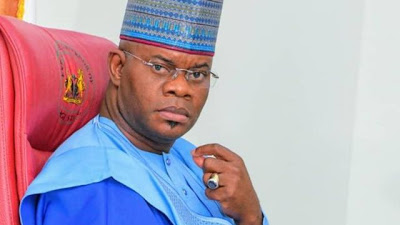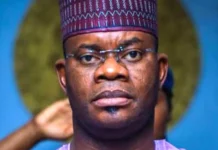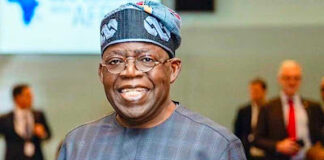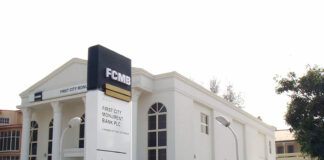…Also calls for electoral reforms
Nigerian former Vice President and thel candidate of the Peoples Democratic Party (PDP) in the 2023 presidential election, Atiku Abubakar, has called for a coalition of opposition parties against the ruling All Progressives Congress (APC).
Atiku, who has contested in numbers of presidential election but lost in all, made the call in Abuja on Tuesday when he hosted the national executive committee of the Inter-Party Advisory Council (IPAC) led by its national president, Yabagi Sani.
IPAC is a platform of all Nigerian political parties, but the ruling parties at every given time have excluded themselves from the group.
The former VP, who cried out over what he described as a gradual slide of Nigeria into a one-party state, said the opposition parties needed to come together to challenge the ruling APC to save Nigeria’s democracy.
He recently criticised President Tinubu’s appointment of APC members and loyalists as National Commissioners of the Independent National Electoral Commission (INEC), positions which the Nigerian constitution stipulates must be occupied by only non-partisan persons.
“We have all seen how the APC is increasingly turning Nigeria into a dictatorship of one party. If we don’t come together to challenge what the ruling party is trying to create, our democracy will suffer for it, and the consequences of it will affect the generations yet unborn,” Atiku was quoted as saying in a statement by his media adviser, Paul Ibe, on Tuesday.
The coalition Atiku seeks should have members of the opposition parties in the National Assembly jointly sponsor legislation “that will advance the course of the constitutional and electoral reforms”.
It is however not yet clear if what Atiku has in mind also includes the kind of coalition that gave rise to the APC, which was formed from the merger of major opposition parties ahead of the 2015 general elections.
The relatively new party had gone on to defeat then-incumbent President Goodluck Jonathan, therefore terminating the rule of PDP, which had been in control at the centre for 16 years.
Atiku, as PDP’s presidential candidate, has unsuccessfully run against the party on two occasions in 2019 and 2023.
His latest loss in the 2023 presidential election has been partly attributed to his inability to secure the coalition of major political candidates to support him to run against President Tinubu of the APC in the February poll.
At the end of the election, the votes cast for Atiku and two major opposition candidates, including Mr Atiku’s former running mate in the prior 2019 election, Peter Obi, were far more than the votes secured by Tinubu. The other opposition candidate who secured a substantial number of votes was Rabiu Kwankwaso of the New Nigeria People’s Party (NNPP).
Analysts say the outcome of the election was an indication that a coalition of the three frontline opposition candidates would have earned their joint candidate a triumph over Tinubu.
Both Atiku and Obi unsuccessfully challenged Tinubu’s victory at the Presidential Election Petitions Court and the Supreme Court, which affirmed the president’s election in October and laid to rest the legal disputes over the February polls.
Calling for a formidable united opposition front on Tuesday, Atiku said “The project of protecting democracy in our country is not about just one man,” according to the statement issued by his media adviser.
“You have come here today to say that we should cooperate in order to promote democracy.
“But the truth of the matter is that our democracy is fast becoming a one-party system; and, of course, you know that when we have a one-party system, we should just forget about democracy,” the former vice president said.
Atiku also repeated his criticism of INEC, which has been featured in his public comments since the results of the 2023 presidential elections, which he disputed, were announced.
He said the electoral body conducted the worst-ever general elections in the country, in reference to the 2023 elections.
“The Independent National Electoral Commission conducted the worst general election in the country.
“Recently again in the off-season election in three states, INEC doubled down on its disregard for the tenets of our democracy.
“We all can see how INEC declared a result in Kogi State where the total number of votes cast is higher than the total number of accredited voters in one local government.
“We cannot have a healthy democracy in an environment where all INEC does is to deliver the ruling party at all cost,” he said.
Atiku also urged opposition lawmakers in the National Assembly to form a coalition on constitutional and electoral reforms.
“That is also why I will urge you all, to appeal to lawmakers of the various opposition parties in the National Assembly to sponsor legislation that will advance the course of the constitutional and electoral reforms agenda that I shared in my recent press conference. The issue of electronic voting must be the urgent priority of the National Assembly because countries that are far less advanced as Nigeria are already doing it.
“Until our elections pass the test of transparency through electronic voting, it will be difficult for INEC to regain its credibility, and our democracy will be the first casualty of such a situation,” Atiku said.
IPAC speaks
IPAC president, Mr Sani, while speaking on behalf of the group, said they chose to visit Atiku because of his profile as a true democrat and political leader who treads the path of detribalisation and politics without violence.
Mr Sani observed that notwithstanding the glaring shortcomings associated with our elections, democracy remains the best form of government.
The former vice president is the “issue of the democracy in Nigeria,” Mr Sani said, adding that “the journey has just begun for Atiku”.
He also assured that IPAC would be available at any time that he needed them as a group.
Atiku, a founding member of the PDP at the beginning of the current Fourth Republic when he emerged as Nigeria’s Vice President, had left and returned to the party on different occasions since 2006 to contest for president on different platforms.
He returned to the party after failing to win the 2007 presidential election and left again in 2014 for the then newly formed APC to contest the party’s presidential ticket to run for the 2015 election. He lost the party’s ticket to Muhammadu Buhari, who went on to defeat then-President Goodluck Jonathan in the 2015 presidential election.
He left the APC in 2017 for the PDP. He emerged as the PDP’s presidential candidate and President Buhari’s main challenger in the 2019 election.
He lost the 2019 election and lost the legal battles he fought up to the Supreme Court seeking the reversal of Mr Buhari’s victory.
He again secured the PDP’s ticket for the 2023 presidential candidate.
This time the divided opposition front produced three formidable candidates, including Peter Obi, who was Atiku’s running mate in the 2019 presidential election.
The division in the opposition camp helped Mr Tinbu’s APC to emerge victorious in the keenly contested February election.
The Supreme Court has dismissed the separate cases filed by Atiku and Mr Obi to challenge Mr Tinubu’s victory.













